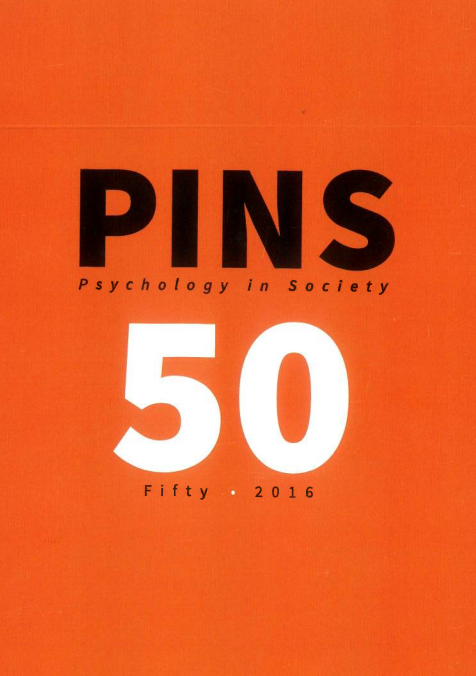Editorial: Sobukwe, psychology, and politics
DOI:
https://doi.org/10.17159/2309-8708/2016/n50a1Abstract
It is a sign of the times that a journal devoting a special issue to the work and ideas of Robert Mangaliso Sobukwe should feel the necessity to “justify” itself, and especially so a psychology journal. What have Sobukwe’s ideas got to do with psychology, and even a journal of the social in psychology? Previous special issues of PINS (Psychology in society) have usually come about for two reasons: either to highlight some important social phenomenon (like racism, HIV/AIDS), or to bring attention to some neglected area of investigation (like social cohesion). The work and ideas of Robert Sobukwe have certainly suffered from intellectual neglect, not to mention the marginalization of Africanist thought through the hegemony of the Charterist political project. Mcebisi Ndletyana (2013) has made this point forcefully. He notes that repeated opportunities to commemorate Sobukwe’s legacy were met with a telling silence: “This silence tells us, in its own unique way, of an official quest to forget Sobukwe … Attempts to erase Sobukwe’s memory in our public consciousness are indicative of how those in power legitimise themselves.” (Ndletyana, 2013: 15).
Downloads
Downloads
Published
How to Cite
Issue
Section
License
This journal is an open access journal, and the authors' and journal should be properly acknowledged, when works are cited.
Authors may use the publishers version for teaching purposes, in books, theses, dissertations, conferences and conference papers.
A copy of the authors’ publishers version may also be hosted on the following websites:
- Non-commercial personal homepage or blog.
- Institutional webpage.
- Authors Institutional Repository.
The following notice should accompany such a posting on the website: “This is an electronic version of an article published in PINS, Volume XXX, number XXX, pages XXX–XXX”, DOI. Authors should also supply a hyperlink to the original paper or indicate where the original paper (http://www.journals.ac.za/index.php/pins) may be found.
Authors publishers version, affiliated with the Stellenbosch University will be automatically deposited in the University’s’ Institutional Repository SUNScholar.
Articles as a whole, may not be re-published with another journal.
The copyright of the article(s) lies with the author(s).
The copyright of the journal lies with PINS-psychology in Society.
The following license applies:
Attribution CC BY-NC-ND 4.0 - https://creativecommons.org/licenses/by-nc-nd/4.0/

